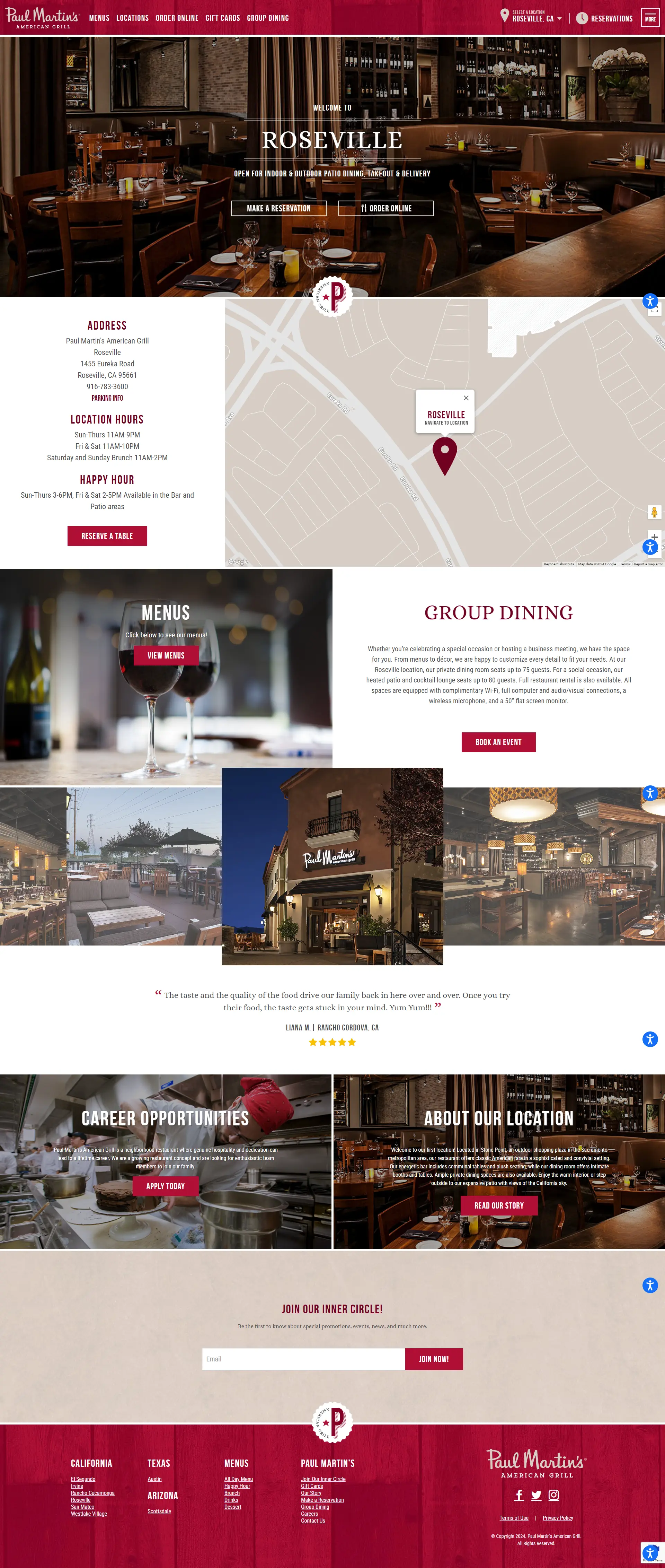Business Marketing: Tips & Advice
Introduction to Business Marketing
Marketing your business effectively in today’s digital age requires more than just a general approach; it demands a strategy that’s as unique as your business itself. At MNKY Agency, we specialize in crafting marketing solutions that align perfectly with your specific business needs and market dynamics.
This guide is designed to equip you with targeted marketing strategies across a wide array of business sectors. From understanding the nuances of digital marketing to leveraging traditional marketing methods, we’ll cover the essentials that every business owner needs to know.
We’ll delve into how to conduct effective market research, choose the right marketing channels, and create content that engages and converts. Whether you’re looking to enhance your current marketing plan or build a new one from scratch, you’ll find actionable tips and insights here.
Let’s explore these strategies together and discover how you can elevate your business’s market presence and achieve sustainable growth.
Part 1: Understanding Your Market
Market Insights: The Foundation of Effective Marketing
Before you can effectively market your business, you need to understand who you are marketing to and the environment in which your business operates. This understanding forms the bedrock of all your marketing efforts, guiding you on how to approach your audience and tailor your messages for maximum impact.
Identifying Your Target Audience
The first step in understanding your market is identifying who your target audience is. This involves more than just demographic data like age and location; it includes psychographic information such as interests, values, and behaviors. Tools like Google Analytics, social media insights, and customer surveys can provide valuable data that helps paint a clearer picture of your audience.
Analyzing the Competition
Knowing your competitors is crucial. Conduct a competitive analysis to see what others in your field are doing. What marketing strategies are they using? What seems to be working for them, and what isn’t? This analysis will not only give you insights into market trends but also help you find gaps in the market that your business can fill.
Understanding Market Trends
Stay informed about the latest trends in your industry. This includes technological advancements, shifts in consumer preferences, and changes in regulatory landscapes. Industry reports, news outlets, and trade magazines are great resources for keeping up-to-date. Recognizing these trends can help you anticipate market needs and adjust your marketing strategy accordingly.
Leveraging Customer Feedback
Customer feedback is invaluable. Regularly engage with your customers through surveys, focus groups, or social media interactions to gather feedback on your products, services, and marketing efforts. This direct line of communication helps you understand customer satisfaction and areas needing improvement.
Establishing Clear Marketing Objectives
With a solid understanding of your market, set clear and measurable marketing objectives. Are you looking to increase brand awareness, generate leads, or enhance customer loyalty? Your objectives should align with your overall business goals and be specific, measurable, achievable, relevant, and time-bound (SMART).
Next Steps: Building on Market Insights With a comprehensive understanding of your market established, you’re well-prepared to move into developing a strategic marketing plan that speaks directly to your audience and stands out from the competition. The next section of this guide will delve into how to harness digital marketing tools effectively to reach your business objectives.
By grounding your marketing strategies in a deep understanding of your market, you set the stage for effective communication and sustainable growth. Let’s carry these insights forward as we explore the dynamic world of digital marketing in the next part of our guide.
Part 2: Digital Marketing Essentials
Harnessing the Power of Digital Tools for Business Growth
In the digital era, mastering online marketing channels is not just beneficial—it’s essential. This section will guide you through the key components of digital marketing, helping you to create a robust online presence and engage effectively with your audience.
Building a Professional Website
Your website is often the first point of contact between your business and potential customers. Ensure it is professionally designed, easy to navigate, and optimized for mobile devices. Your website should also be optimized for search engines (SEO) to improve your visibility in search results. Important elements include fast loading times, responsive design, and clear calls-to-action (CTAs) that guide visitors toward making a purchase or contacting your business.
Content Marketing: Engage and Educate
Content marketing is all about creating valuable, relevant, and consistent content to attract and retain a clearly defined audience. Blog posts, articles, white papers, and videos can establish your brand as a thought leader in your industry while also improving your search engine rankings. Focus on solving problems or answering questions that your customers may have, which helps build trust and authority.
Social Media Strategies: Build Community and Brand Loyalty
Social media platforms like Facebook, Instagram, LinkedIn, and Twitter offer powerful ways to connect with your audience. Develop a social media strategy that aligns with your brand identity and audience preferences. Regularly post engaging content, respond to comments, and create interactive elements such as polls or live videos. Analytics tools can help you track engagement and refine your approach over time.
Email Marketing: Personalized Outreach
Email marketing remains one of the most effective digital marketing techniques. Use emails to nurture leads, announce new products or services, and provide exclusive content to subscribers. Personalization is key—use your customer data to tailor emails to meet the interests and needs of different segments of your audience. Automation tools can help manage your campaigns and ensure timely communication with your customers.
Pay-Per-Click Advertising: Immediate Exposure
PPC advertising allows you to place ads on platforms such as Google AdWords or social media sites, where you pay each time someone clicks on your ad. This can be an effective way to drive traffic to your website quickly. It’s important to carefully manage your budgets and target your ads to reach the most relevant audience based on demographics, interests, and behaviors.
Utilizing Analytics to Measure Success
Digital marketing provides the advantage of trackability, which means you can measure and analyze the performance of your strategies in real-time. Tools like Google Analytics, Facebook Insights, and others can provide you with data about your website traffic, conversion rates, and overall campaign performance. Use this data to make informed decisions and continuously optimize your marketing efforts.
Moving Forward with Confidence With these digital marketing essentials in place, you’ll be better equipped to promote your business effectively in the digital world. As we move to the next section, we will explore how traditional marketing techniques can still play a crucial role in your overall marketing strategy, complementing your digital efforts.
By integrating these digital strategies, you ensure that your marketing efforts are comprehensive, modern, and effective, setting your business up for success in the competitive marketplace.
Part 3: Traditional Marketing Techniques
Blending Classic Approaches with Modern Strategies for Optimal Reach
While digital marketing has become a cornerstone of any comprehensive marketing plan, traditional marketing techniques still hold significant value, especially when integrated with modern methods. This section explores how you can leverage these traditional approaches to enhance your marketing strategy.
Networking and Building Partnerships
Personal connections and face-to-face interactions remain powerful tools in building business relationships. Attend industry conferences, local business meetings, and community events to network with potential clients and other businesses. Building partnerships can also help you extend your reach, share resources, and gain new customer bases through co-marketing efforts.
Direct Mail and Print Media
Despite the digital age, direct mail campaigns and print media can effectively target specific demographics, particularly in regions with less digital engagement or for audiences that prefer physical media. Tailored brochures, flyers, and promotional materials sent directly to homes or businesses can create a tangible connection with potential customers.
Utilizing Outdoor and Broadcast Advertising
Billboards, bus stops, and other outdoor advertisements can dramatically increase brand visibility in specific geographic areas. Radio and television ads also continue to be effective, especially for reaching broader audiences in local markets or specific demographic groups. These media can be especially effective for promotions and brand awareness campaigns.
Participating in Trade Shows and Exhibitions
Trade shows and exhibitions provide a platform to showcase your products or services to a captive audience interested in your industry. These events are an excellent opportunity to demonstrate your product in action, gather leads, and directly interact with potential customers.
Leveraging Public Relations
Effective public relations strategies can help you manage the public perception of your business. Issuing press releases, participating in community events, and even sponsoring local sports teams or charity events can enhance your reputation and foster goodwill in your community.
Promotional Products and Merchandising
Branded merchandise such as pens, bags, and apparel can serve as ongoing advertisements for your business. These items, when used by recipients in their daily lives, keep your brand visible and top of mind, helping to increase brand recognition and loyalty.
Integrating Traditional with Digital The key to successful marketing in the modern marketplace is the integration of traditional and digital strategies. By aligning your offline activities with your online presence, you can create a seamless customer experience and reinforce your marketing messages across all channels.
As you continue to explore the best ways to promote your business, remember that the combination of digital and traditional marketing techniques can offer a balanced approach, ensuring that you reach your audience wherever they may be.
In the next section, we will delve deeper into how to apply these marketing strategies across various business sectors, ensuring that each strategy is tailored to meet the specific needs and challenges of different types of businesses. This targeted approach will help you maximize the impact of your marketing efforts.
Part 4: Adapting Strategies for Different Business Types
Tailoring Marketing Approaches to Fit Specific Industry Needs
Effective marketing is not just about using the right tools—it’s about tailoring those tools to fit the unique needs and nuances of your specific industry. This section offers detailed guidance on adapting your marketing strategies to various business types, ensuring that each tactic aligns with the industry’s specific characteristics and customer expectations.
Professional Services
For businesses like law firms, consulting agencies, and financial advisors, credibility and trust are paramount. Content marketing that showcases expertise through white papers, detailed blog posts, and client case studies can be particularly effective. Networking and targeted LinkedIn campaigns also play crucial roles in building professional relationships.
Health and Wellness
Businesses such as gyms, yoga studios, and wellness centers benefit from visually-driven marketing strategies on platforms like Instagram and YouTube, where they can post workout videos, healthy recipes, and client testimonials. Local SEO is also crucial for attracting new clients from the community.
Beauty and Personal Care
Salons, spas, and skincare clinics can attract clients with before-and-after photos, video tutorials, and customer reviews on platforms like Instagram and Pinterest. Exclusive offers and loyalty programs shared via email marketing can help retain existing customers and attract new ones through referrals.
Home and Repair Services
For plumbers, electricians, and contractors, reliability and quick response are important. Highlighting positive customer testimonials and before-and-after project photos on your website and via social media can help build trust. Local advertising and SEO strategies ensure visibility in community searches.
Automotive Services
Auto repair shops, dealerships, and body shops can benefit from how-to videos and maintenance tips to engage customers. Special promotions and service reminders via email marketing can keep your shop top of mind for vehicle owners.
Retail and E-commerce
Online retailers should focus on robust e-commerce SEO strategies, user-friendly website design, and targeted social media advertising to boost sales. Implementing a strong retargeting strategy can help capture interested customers who haven’t yet made a purchase.
Food and Hospitality
Restaurants and hotels can use social media to showcase their offerings and ambiance, and encourage reviews from visitors to enhance their online reputation. Email marketing can promote special deals, events, and menu updates to keep the business top of mind.
Arts and Entertainment
Artists, galleries, and entertainment venues benefit from strong visual content on social media platforms and online galleries. Partnerships with online influencers and participation in community events can increase visibility and attract a diverse audience.
Technology and Innovation
Tech companies should leverage content marketing focused on innovation and technology trends, while using targeted ads to reach specific demographics. Networking in tech incubators and industry seminars can also help build connections and foster collaborations.
Education and Childcare
Educational institutions and childcare services can benefit from informational content that provides value to parents, such as tips or educational strategies, shared through blogs and emails. Open houses and community engagement initiatives can also build trust and rapport with local families.
Implementing Industry-Specific Strategies Each sector benefits from a nuanced approach that considers the industry’s specific challenges and customer expectations. By applying these tailored strategies, businesses can more effectively communicate their value proposition and build lasting relationships with their customers.
In the final section, we’ll look at how to implement these strategies effectively and measure their success to ensure continuous improvement and adaptation to changing market conditions.
Part 5: Implementing and Monitoring Your Marketing Strategy
Turning Plans into Action and Results
Once you have developed a tailored marketing strategy for your business, the next step is implementation and ongoing monitoring. This ensures that your efforts are not only effective but also adaptive to changes within the market and your business environment. This section covers key practices in executing and refining your marketing strategies to achieve optimal performance and return on investment.
Launching Your Marketing Campaigns
- Implementation Checklist: Begin with a detailed checklist to ensure all elements of your marketing strategy are aligned and ready for launch. This includes finalizing content, setting up ad campaigns, preparing your website, and ensuring all team members are briefed.
- Timeline and Phases: Break your marketing efforts into manageable phases with specific timelines. This helps in tracking progress and troubleshooting any issues that may arise during the initial rollout.
Setting Up Tools for Monitoring and Analytics
- Analytics Software: Install and set up analytics tools such as Google Analytics, Facebook Insights, or industry-specific analytics platforms. These tools are crucial for tracking website traffic, engagement, conversion rates, and other key performance indicators.
- CRM Systems: Utilize Customer Relationship Management (CRM) systems to monitor customer interactions, manage leads, and streamline communication efforts across your marketing channels.
Regular Reporting and Analysis
- Performance Reports: Generate regular reports to analyze the performance of your marketing campaigns. Focus on metrics that directly relate to your objectives, such as lead generation numbers, sales conversion rates, and return on investment.
- Meeting Rhythms: Establish regular meetings with your marketing team and stakeholders to review these reports, discuss insights, and make decisions based on data.
Iterative Improvements and A/B Testing
- Continuous Improvement: Marketing is an ongoing process of optimization. Use the insights gained from analytics to continuously improve your campaigns. This might involve tweaking your ad copy, adjusting your social media strategy, or refining your SEO practices.
- A/B Testing: Regularly run A/B tests to compare different versions of your website pages, emails, and ads. This empirical approach allows you to optimize your strategies based on what resonates best with your audience.
Adjusting Strategies Based on Feedback and Trends
- Customer Feedback: Incorporate feedback from customer surveys, social media interactions, and direct communications into your marketing strategies. This feedback can provide invaluable insights into customer satisfaction and areas for improvement.
- Market Trends: Stay updated with industry trends and adjust your marketing approach accordingly. This ensures that your strategies remain relevant and competitive in a rapidly changing market.
Training and Development
- Skill Enhancement: Provide ongoing training and professional development opportunities for your marketing team. Keeping your team skilled in the latest marketing techniques and technologies is crucial for maintaining an effective marketing strategy.
- Learning from Others: Encourage participation in webinars, workshops, and industry conferences. This not only broadens skills but also provides networking opportunities and insights into successful strategies used by others in the industry.
Conclusion: Sustaining Success By effectively implementing and continually monitoring your marketing strategy, you ensure that your marketing efforts achieve desired outcomes and can adapt to meet future challenges. Remember, the key to successful marketing lies not only in planning but also in execution and continuous refinement. As your business grows and evolves, so should your marketing strategies, maintaining alignment with your business goals and market dynamics.
In this guide, we’ve explored a comprehensive approach to creating and executing a marketing strategy that resonates with your audience and yields measurable results. Now, equipped with these insights, it’s time to turn these strategies into action and pave the way for the sustained success of your business.
Conclusion: Elevating Your Marketing Strategy for Success
As we wrap up this comprehensive guide to marketing your business, it’s important to reflect on the key takeaways and the transformative potential of implementing tailored marketing strategies. Whether you’re operating a small local shop or managing a larger enterprise, the principles and techniques we’ve discussed are designed to elevate your marketing efforts and help you connect more effectively with your audience.
Marketing is an ongoing journey of discovery and adaptation. The strategies that work today might need adjustment tomorrow as markets evolve and new technologies emerge. By staying proactive and responsive to changes in your industry and audience behaviors, you can maintain a competitive edge and continue to grow your business.
Here are a few final points to keep in mind as you move forward:
- Stay Informed: Keep abreast of new marketing trends and technologies. The world of marketing is dynamic, and staying informed is key to adapting and thriving.
- Be Analytical: Regularly review the data from your marketing campaigns. Use these insights to refine your strategies, enhance customer engagement, and improve return on investment.
- Customer-Centric: Always put your customers at the heart of your marketing strategy. Understand their needs, solve their problems, and enhance their experiences with your brand.
- Test and Learn: Don’t be afraid to experiment with new ideas. Testing different approaches can lead to valuable insights and help you discover the most effective strategies for your business.
Finally, remember that effective marketing doesn’t just spread the word about your business—it builds relationships, fosters loyalty, and creates a community around your brand. As you implement the strategies outlined in this guide, keep your ultimate goals in focus: to not only achieve immediate sales but also to build long-term growth and customer satisfaction.
Thank you for joining us on this deep dive into the art and science of marketing. Armed with these strategies, you’re now better equipped to craft a marketing plan that resonates with your audience, reflects your brand’s values, and drives your business towards greater success. Here’s to your continued growth and achievements in the marketplace!
Additional Resources: Further Reading and Learning
To continue your journey in mastering business marketing, it’s beneficial to delve into additional resources that can offer deeper insights and broader perspectives. Here are some recommended readings and online resources that can help you expand your knowledge and stay ahead in the competitive world of marketing:
- Books
- “This Is Marketing” by Seth Godin – A modern marketing classic, this book redefines what it means to do marketing right today. It’s a must-read for anyone who wants to understand how to do marketing with integrity and effectiveness. Purchase on Amazon
- “Contagious: How to Build Word of Mouth in the Digital Age” by Jonah Berger – Berger explores why certain information spreads more than others and how you can harness this power for your marketing campaigns. Purchase on Amazon
- “Marketing 4.0: Moving from Traditional to Digital” by Philip Kotler – This book by one of the most respected names in Marketing shifts focus from traditional practices to digital techniques that are effective in the connected world. Purchase on Amazon
- Online Courses
- Google’s Digital Garage – Offers free courses on a wide range of subjects related to digital marketing, from search engine optimization to social media basics. Visit Google Digital Garage
- HubSpot Academy – A great resource for comprehensive, certification courses in content marketing, email marketing, inbound marketing, and much more. Visit HubSpot Academy
- Websites and Blogs
- MarketingProfs – Provides both strategic and tactical marketing know-how for marketing professionals through training programs, online events, conferences, and supplementary resources. Visit MarketingProfs
- Content Marketing Institute – Offers a wealth of how-to guides, insights, research, and advice on content marketing strategies and best practices. Visit Content Marketing Institute
- Social Media Examiner – This site helps businesses discover how to best use social media, blogs, and podcasts to connect with customers, drive traffic, generate awareness, and increase sales. Visit Social Media Examiner
- Podcasts
- Marketing Over Coffee – A podcast that covers both classic and new marketing tactics, hosted in a local coffee shop every week. Listen to Marketing Over Coffee
- The Digital Marketing Podcast – An internationally recognized podcast providing a mix of practical tips, insights, and interviews with leading marketing professionals. Listen to The Digital Marketing Podcast
By exploring these resources, you can deepen your understanding of marketing principles, stay updated on the latest trends, and continue to refine your skills as a marketing professional. Whether through books, online courses, blogs, or podcasts, ongoing education is key to maintaining a competitive edge in your marketing career.
Ready to Transform Your Marketing Strategy?
At MNKY Agency, we understand that a great marketing strategy is not just about getting your message out there—it’s about creating meaningful connections, driving engagement, and achieving tangible results. Whether you’re looking to refine your digital presence or need a comprehensive strategy that spans multiple channels, our team is here to help.
Don’t let your business blend in. Stand out with a tailored marketing approach that speaks directly to your target audience and aligns perfectly with your business goals. Our experts are ready to craft a marketing plan that ensures your brand not only reaches but resonates with your customers, turning them into loyal advocates for your business.
Call to Action
Contact MNKY Agency today to schedule a consultation. Let us help you unlock your brand’s potential and set you on the path to greater success. Reach out through our website, give us a call, or drop us an email. We’re excited to work with you and see how far we can take your marketing together.
Take the first step towards better marketing. Let’s make something amazing together!















